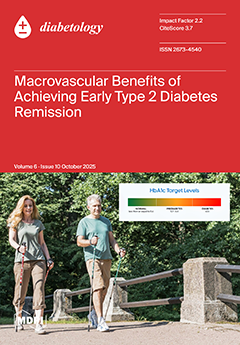Introduction: Women with gestational diabetes mellitus (GDM) can present with hypoglycaemia during the oral glucose tolerance test (OGTT), which has been associated with adverse perinatal outcomes.
Objectives: We studied whether the presence of hypoglycaemia during the OGGT (HdOGTT) was associated with adverse perinatal outcomes.
Methods: Retrospective study of a national database of women diagnosed with GDM in the 24–28th week OGTT. Excluded: women with missing OGTT or the primary outcomes data. HdOGGT: any glucose value < 70 mg/dL. Primary outcomes: hypertensive disease of pregnancy, preterm delivery, caesarean section (CSA), small-for-gestational-age, large-for-gestational-age, neonatal hypoglycaemia, respiratory distress syndrome, and intensive care unit admission. Women with and without hypoglycaemia were compared. Predictors of HdOGTT and the association between HdOGTT and the primary outcomes were studied using a multivariate logistic regression analysis.
Results: We analysed 7704 women, 10.7% with HdOGTT. Most of them (94.8%) presented fasting hypoglycaemia, and 3.2% had blood glucose values < 54 mg/dL. There were no differences between groups regarding the primary outcomes, except for women with HdOGTT, who had a lower rate of CSA (34.1% vs. 29.0%,
p = 0.001), large-for-gestational-age newborns (9.7% vs. 13.8%,
p < 0.001), and a higher rate of small-for-gestational-age newborns (11.0% vs. 6.9%,
p < 0.001) than those without HdOGTT. Age, BMI, previous miscarriage, and chronic hypertension were associated with lower risk of HdOGTT. HdOGTT was only associated with increased risk of SGA [OR (95% CI): 1.25 (1.00–1.56),
p = 0.047] after adjustment for confounders.
Conclusions: The prevalence of HdOGTT was 10.7%. Age, BMI, previous miscarriage, and chronic hypertension were associated with lower risk of HdOGTT. HdOGTT was associated with 25% higher risk of SGA newborns.
Full article





